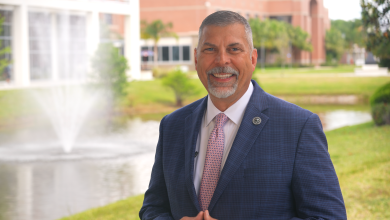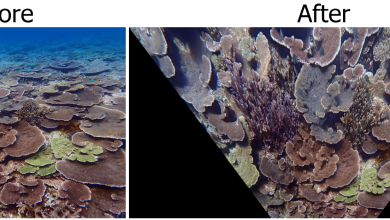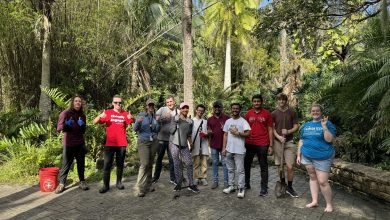Grant Awarded to Florida Tech for Beach Nourishment Research
– A Florida Institute of Technology scientist was awarded $312,000 to conduct research that will help coastal managers make decisions on nourishing
Florida’s eroding beaches.
Dr. Elizabeth Irlandi, assistant professor of marine and environmental systems, was awarded
$233,998 from the Florida Fish and Wildlife Conservation Commission (FWC) to study how beach nourishment affects common animals. Dr. William Arnold of the
Florida Fish and Wildlife Research Institute is the co-investigator for the three-year research grant. The institute is providing matching funds of
$77,999.
Coastal zone managers are currently making decisions about regulating the timing and location of sand that will help replace portions of Florida’s
coastline. The managers are basing their decisions on biological consideration for worm rock and sea turtles. Dr. Irlandi’s research will allow them to
include other common animals into their decision making.
Currently, little is known about common animals that inhabit Florida’s beaches. That’s why Dr. Irlandi’s research is so important. Her research focuses on
ghost and mole crabs and coquina clams because they are considered indicator species for beach habitat in Florida’s Comprehensive Wildlife Conservation
Strategy. These animals provide important ecological functions in coastal environments, such as cycling organic matter and providing prey to fish and
birds. Very little is known about the general ecology of these organisms. Even less is known about how beach nourishment affects them. This research will
help coastal zone managers decide when and where to replace the sand to minimize the impact on beach animals. The research will also predict how
nourishment will affect these animals and how they will recover.
Beach nourishment is intended to mediate property loss, improve storm protection, enhance tourism, and replace eroded nesting habitat for sea turtles. More
than 600 miles of Florida’s coastline were impacted by the storms of 2004. Before 2004, an estimated 435 miles of Florida’s 825 miles of sand beaches were
considered eroded, and 328 miles were described as critically eroded. The joint FWC/Florida Tech research will be performed on intertidal beaches along
Florida’s east and west coasts in Indian River County and Pinellas County.
Dr. Irlandi is a marine benthic ecologist who has worked as a research scientist for more than 10 years investigating the interactions between estuarine
and marine organisms and their habitats. She is particularly interested in how anthropogenic impacts, such as beach nourishment, influence these
interactions. For more information about her research, go to http://my.fit.edu/~irlandi/.




